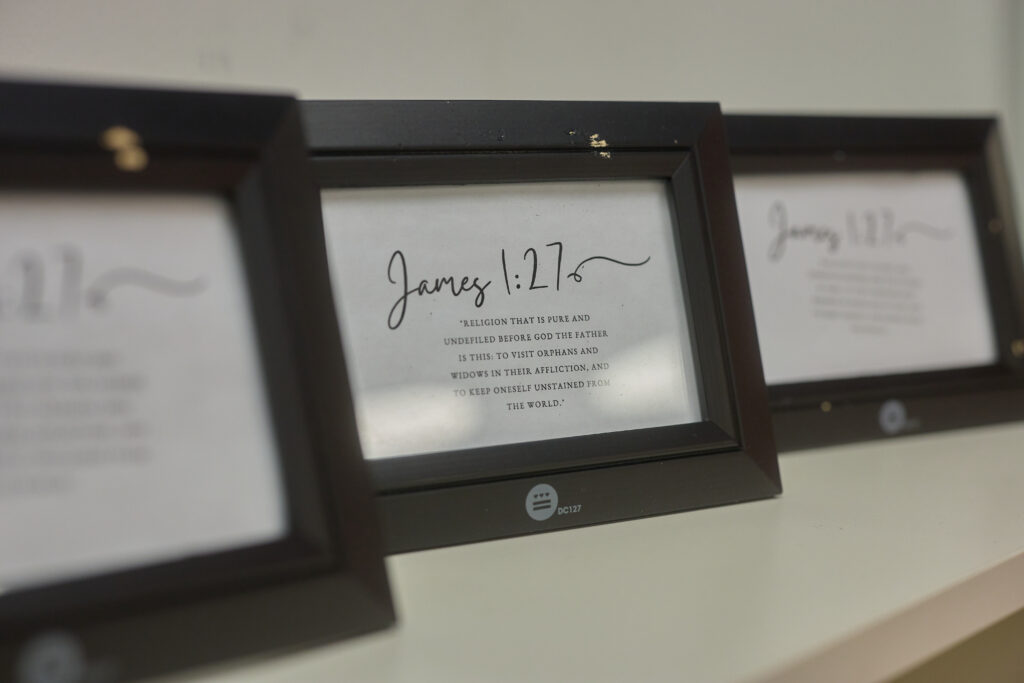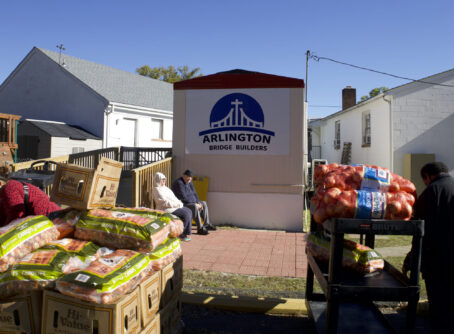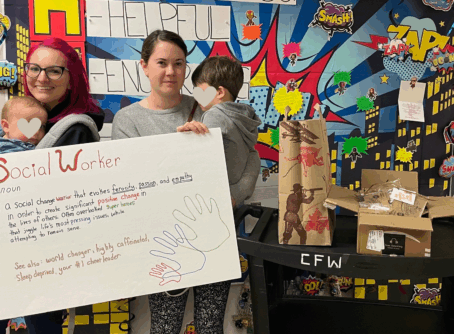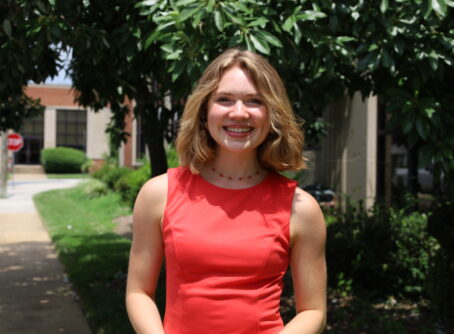
This article is part of Better Together — a storytelling series from the Center for Public Justice highlighting how faith-based organizations have partnered with government to see their communities flourish.
Telling the story of DC127
At the steps of the Lincoln Memorial, people gathered to remember and carry forward a movement. August 2013 marked the 50th anniversary of the March on Washington, where Dr. Martin Luther King Jr. famously delivered his “I Have a Dream” speech. As thousands came to celebrate and to commission one another to realize the dream, another movement—oriented around caring for vulnerable children—was being birthed in Washington, D.C., beginning with an ask for help.
In 2013, 1,300 children were in D.C.’s foster care system, with 1,200 more at risk of entering it. The needs were overwhelming and the resources few. Kids removed from their homes often ended up sleeping on the couches of caseworkers. It was this moment of crisis that compelled Brenda Donald, then Director of Child and Family Services Agency (CFSA), to reach out for help, and specifically, to reach out to the churches of the city. The plea from her was clear:
“The government should not be raising children, children should be raised in a family. And the church seems uniquely positioned to help stand in this gap. Will you all step in?”
The church responded. Pastors Aaron and Amy Graham, who had recently planted The District Church, started DC127 alongside 10 other churches with a mission to “strengthen and stabilize families impacted by the foster care system in Washington, D.C. by mobilizing the Church to provide wraparound support.” Recently, the Center for Public Justice sat down with DC127’s executive director Chrissy Weeks to learn more about their work for CPJ’s storytelling series: Better Together.
The number “127” refers to a particular verse in the Bible: James 1:27, which says,
“Religion that is pure and undefiled before God the Father is this: to visit orphans and widows in their affliction, and to keep oneself unstained from the world.” (James 1:27, English Standard Version).

James, who many Christians believe was the half-brother of Jesus, emphasizes that the care of society’s most vulnerable is at the center of the church’s mission. The government of D.C. was simply asking for the church to live into their identity and to partner together so that each child and family might be made whole.
The movement of DC127 started with an event called Foster the City, where over 400 people from churches, government agencies, and community organizations joined together to imagine a city where there would be more families ready to welcome children than children waiting for families. From the launch of the Foster the City gathering, the work of DC127 has grown and changed but it has been oriented around three core areas of service: foster care support, communities for families, and church mobilization.
Foster Care Support
Every individual or family seeking to become a foster care parent, must complete an initial information session and begin to fill out multiple forms, which are hurdles that can be daunting for many. In partnership with CFSA, DC127 is a licensed provider to offer these sessions and help people begin to work through the foster care qualification process. Once someone is licensed through CFSA, they will be required to participate in ongoing training to best care for the kids entrusted to them. Because of this, DC127 offers a variety of workshops accredited through CFSA to support foster families in their ongoing education requirements.
Foster care support not only involves government and nonprofits working together, but businesses also get involved. Ajia Minnis Cruz Lanham, the founder of Thrive Hair Bar, heard about the work of DC127 and wanted to contribute in a powerful way. For many foster care children, they will find themselves in homes of parents who don’t share their same race or ethnic identity. And one of the difficulties of this reality for the foster parents is adequately caring for their foster child’s hair, which may take on a different shape, texture, and color than their own. Ajia wanted to stand in this gap and has been offering hair care workshops for foster families.
“The partnership with DC127 is incredibly fulfilling. Being a parent is tough and I know how difficult it is, even for parents who share the same DNA as their children, to make time to properly care for their children’s hair.. that difficulty is only compounded when you don’t share the same genetics or physical characteristics as your children. Hair is such an important part of how we see ourselves, how we assess our self-worth, how we bond with our loved ones, and how we feel we show up the world. Foster parents are amazing people who open their lives, hearts, and homes to children from all walks of life and by partnering with DC127 to support foster families through hair care workshops, we hope we are doing our small part to help make their journeys less cumbersome, help them instill pride, stability, and confidence in their children, and overall make the world a better place.”
– Ajia Minnis Cruz Lanham
Communities for Families
The solution to solving the foster care crisis is not only recruiting new families to open their homes, but also the preventative work of supporting and caring for families that are at risk and in need of help. In 2017, CFSA again approached DC127, this time about starting a prevention program called Safe Families with city funding. Safe Families is designed to provide short-term emergency care for kids with the goal of helping them avoid ending up in the state’s care. After two years of participating in this program, DC127 transitioned by creating its own model, Communities for Families, designed to meet the unique needs of families in D.C., where church volunteer teams walk alongside families at risk of separation for six to nine months.
Church Mobilization
“I can’t remember when I’ve experienced such generosity, kindness, and professionalism in one organization. The services you provide have more of an impact than you can possibly know. By attending last year’s training… I feel better-equipped to cope with the effects of the traumas they have experienced. I wouldn’t describe myself as religious, but I know you’re doing God’s work in a real way! Thank you, thank you, thank you!”
DC127 does the work of mobilizing and equipping churches to respond to the needs of foster children, foster parents, and also families who have kids in government’s care. Typically, this looks like identifying a volunteer advocate in every church community to be a champion of the work. This advocate works in tandem with DC127 to mobilize their congregation when needs arise.

For organizations like DC127, caring and serving foster care children and families will always involve partnering with government. Yet partnerships take time, come with challenging moments, and involve building trust and relationships. When Chrissy Weeks, the Executive Director of DC127 was asked about what advice she would give to other faith-based organizations seeking to partner well with government she said,
“Go in with curiosity to learn about them [governmental agency], what they do, who has been there, and who they already partner with. Find out what is already happening and don’t duplicate what others are doing but rather consider how you can work effectively together.”
If DC127 has the chance to celebrate 50 years of faithful service, there might not be thousands gathered on the steps of Lincoln Memorial. But there will be countless stories of children being loved, families being restored, churches mobilized, and the city rejoicing because, as Dr. King envisioned, “justice rolls down like waters, and righteousness like a mighty stream.”
Charlie Meo is the Director of Faith-Based Leaders Alliance at the Center for Public Justice.



